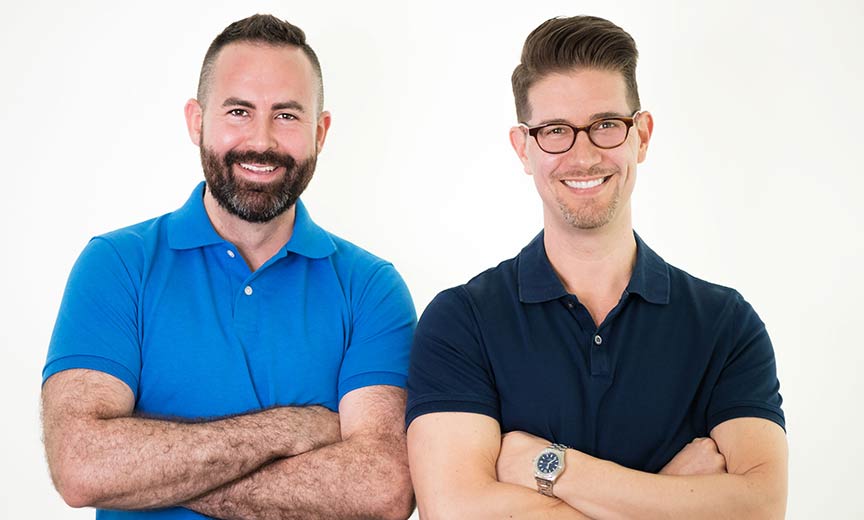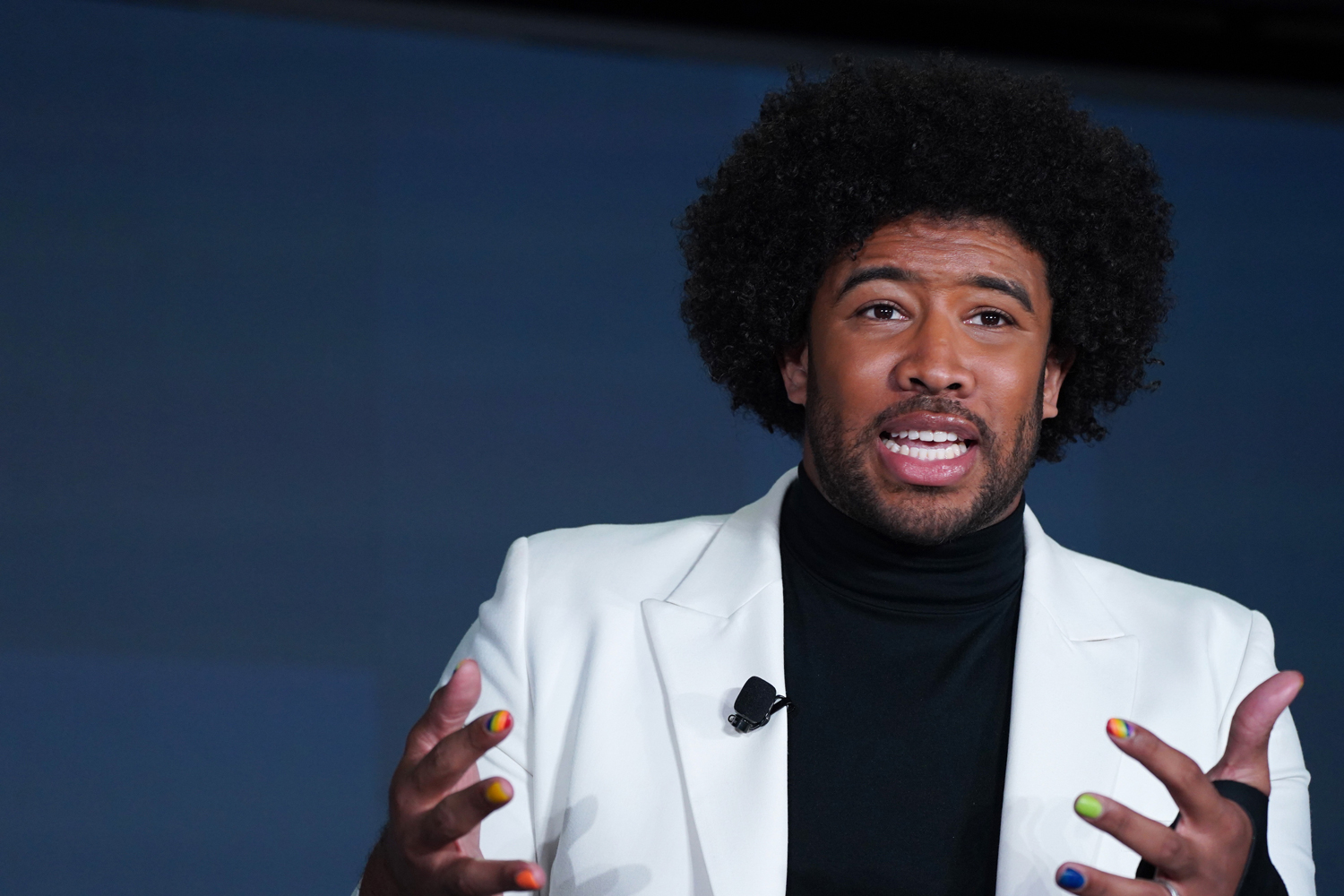We ask our feet to support us through thick and thin; so we sought out an expert to ask how we can take the best care of them in return.
Dr. Ethan J. Ciment (pictured, above, right) is an openly gay business owner who addresses the entire spectrum of foot and ankle medicine and surgery. His practice is located at 37 West 20th Street, beside the historic Limelight Marketplace. As foot disorders are some of the most neglected health problems affecting people in the U.S., we reached out to Dr. Ciment for some advice.
How has health care changed since you opened your practice back in 2004?
The healthcare environment was a lot friendlier back then, more people had commercial insurance plans which were less constrictive, so it was easier to get people to come in because everyone’s insurance worked. What we’ve seen over the last decade and a half is an annual increasing restriction on healthcare access to Americans through their own healthcare plans. That’s made it difficult to adapt to this constantly changing healthcare landscape to make sure we can still provide really great quality service to everybody who needs access to a doctor.
Have you encountered homophobia in the course of your career?
I have definitely experienced professional homophobia in the way a lot of gay professional do. I’ve been introduced to other doctors or potential referral sources who, when they find out my wife is actually my husband (or something like that), suddenly stop calling or referring. Honestly, I would say that it’s been a lot less than my colleagues that live in other cities and I think that’s a testament to New York City and what an incredibly open society we have. New York is really gay-affirming; [we have] a great deal of LGBT-supporting straight allies here.
So explain how your practice at Chelsea Foot and Ankle actually works.
We’re about to go into our fifteenth year and little over two years ago, Dr. Michael Collins (pictured, above, left) joined our practice and has been a really amazing addition to our practice. It was important for me to hire another LGBT physician/surgeon like Dr. Collins because I feel that it’s important for us to be able to mentor people within our own community. He is thriving in our practice, our clients really love him. He brings in critical expertise in ankle and rear foot surgery which is really tricky. He did one of the most prestigious programs for his training here in New York and was also an openly gay man during his training.
Find LGBTQ-Friendly ResourcesWhat brings people through the door at Chelsea Foot and Ankle?
While at Chelsea Foot and Ankle we treat the entire spectrum of foot and ankle medicine and surgery from dermatologic, orthopedic, pediatric as well as surgical and advanced diabetic limb-salvage procedures, I would say the trend in my practice over the past ten years has really been shifting to making us a mostly sports medicine practice. I love this because I love practicing sports medicine and surgery but at the same time I also love everything else. Ultimately you need to treat the community where you are at. This is what we do. I would say that concerning the overwhelming majority of people coming in with sports injuries are the so-called “Weekend Warriors” who maybe spend most of their work week sitting at a desk (or if they’re lucky, having a standing desk) and relatively sedentary. Then on the evenings and weekends they really want to go out and get physically active. They’re doing so without necessarily having the core balance and stability they need. What we end up seeing is a lot of injury related to overtraining.
Any advice for us “Weekend Warriors”?
You need to make sure you have a fundamental basic level of fitness before engaging in activities. We commonly see people who decide they want to start running. Instead of going for a short one-and-a-half or two-mile jog or run, they start off by running a 5K without really training for it. By doing so, they end up with multiple muscular injuries. This can end up setting them back months, if not years. Before undertaking any exercise training program, I think it’s always important to work out a plan with a trainer or physical therapist who can do a core stability and balance assessment. As we age, we lose some of our natural musculoskeletal ability and core balance. These are things that are critical, especially when you think about high impact-high velocity injuries that we see — not just related to running but [also to] these so-called High-Intensity Interval Training classes (HIIT). The injuries people get are really, really intense, a lot of which can be avoided if people simply start with the basics and master those core techniques first so they can build on them and safely participate in their desired activities.
How do you establish trust with patients?
I think one of the reasons we have relationships with patients that keep coming back for over fifteen years is that doctor-patient relationship. We really practice a form of relationship-based medicine where we don’t rush our patients in and out for five to ten minute appointments; our appointments are at least forty-five minutes long. We really try to get to know our patients — not just their medical history or around their injury or what’s bothering them, but we actually get to know who they are as people, how they live their life, their patterns and whatnot. The more you get to know your patients, the better you are going to be able to take care of them.
Do you suffer from migraine headaches?
Last modified: April 23, 2019











